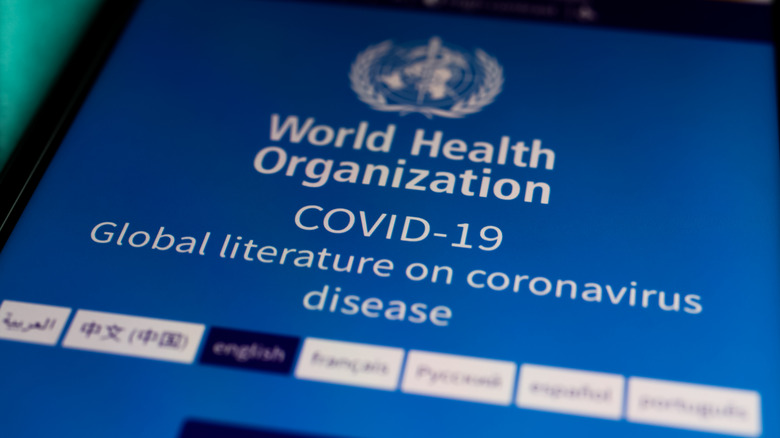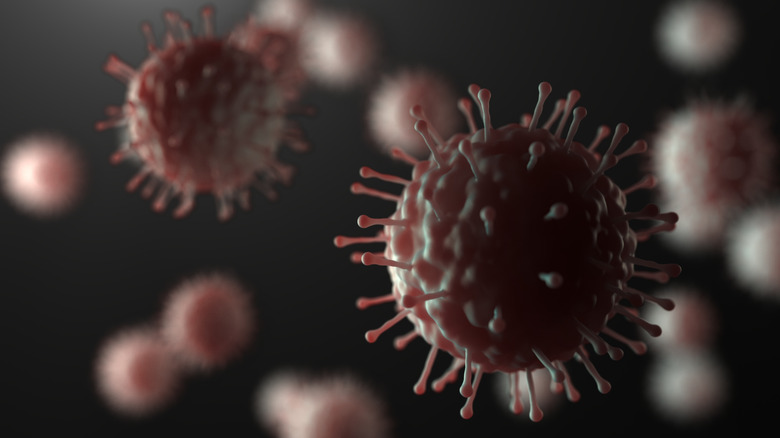WHO Official Reveals New COVID-19 Variant Could Be Worse Than Omicron
Although some health experts have begun to voice theories that the end of the pandemic may be in sight, World Health Organization (WHO) officials publicly announced on Tuesday, January 25, that they expect a new variant to emerge following Omicron that may be even more transmissible than previous variants (via CNBC).
While the severity of COVID-19 symptoms seems to have been milder with the Omicron variant, experts caution that this should not be taken as an assurance that all subsequent variants will follow the same downward trend, according to CNBC. While WHO official Maria Van Kerkhove seems confident that the next emerging variant will increase in transmissibility, they cannot say for sure what this will mean in terms of its severity of symptoms.
During a social media Q&A, Van Kerkhove stated, "The next variant of concern will be more fit, and what we mean by that is it will be more transmissible because it will have to overtake what is currently circulating. The big question is whether or not future variants will be more or less severe," (via CNBC).
Future variants likely to be more transmissible than Omicron
Additional concerns facing experts in regard to new and emerging variants include how effectively they may bypass human immunity, as well as vaccine efficacy (via Live Science). Kartik Chandran, virologist and professor of microbiology and immunology at the Albert Einstein College of Medicine in New York City, strongly believes that COVID-19 will continue to mutate, telling Live Science, "There's no reason to believe that the virus has run out of room, genetically. I would expect that we're going to see more variants, and we're going to see similar types of wave-like behavior."
Underscoring the WHO's anticipation of continued mutations is the development of the BA.2 subtype of the Omicron variant detected in Europe (via NBC News). While its genetic mutations aren't significant enough to be deemed its own new variant separate from Omicron, infectious diseases expert Cameron Wolfe describes them as "brothers in the same family."
Because current vaccines may not eventually be as effective against ongoing mutations, WHO official Maria Van Kerkhove stresses that people should not dismiss future variants as being low risk. The WHO's Director of Emergency Programs Dr. Mike Ryan states, "The virus has proven to give us some nasty surprises." For this reason, health officials continue to emphasize the importance of preventative measures through social distancing, masking, and vaccination (via CNBC).


